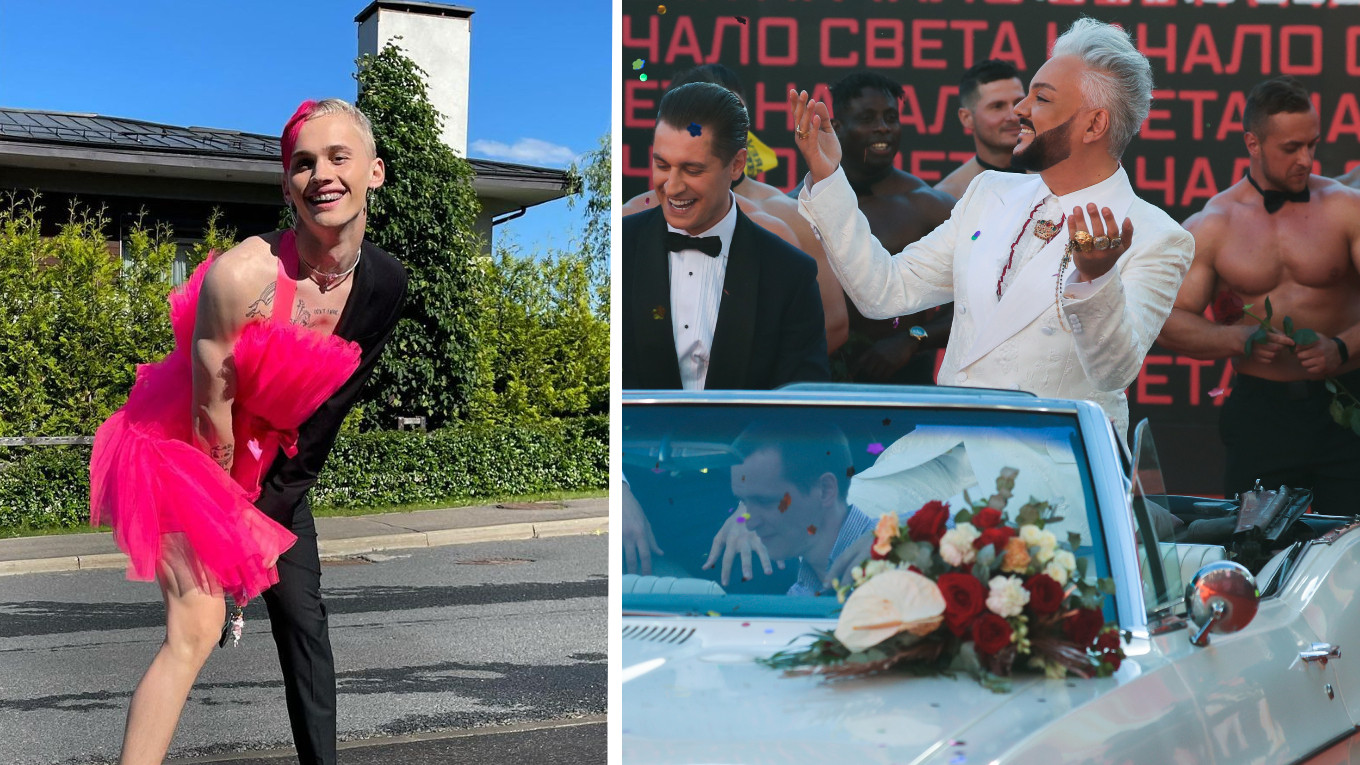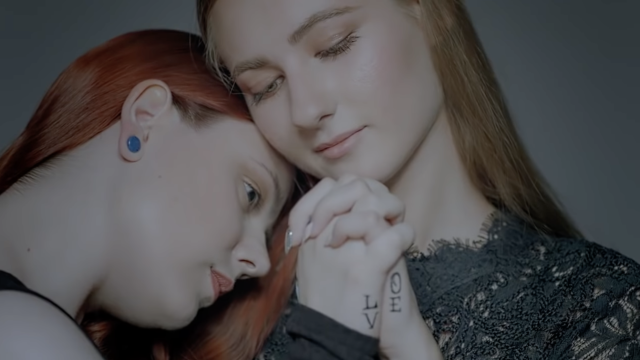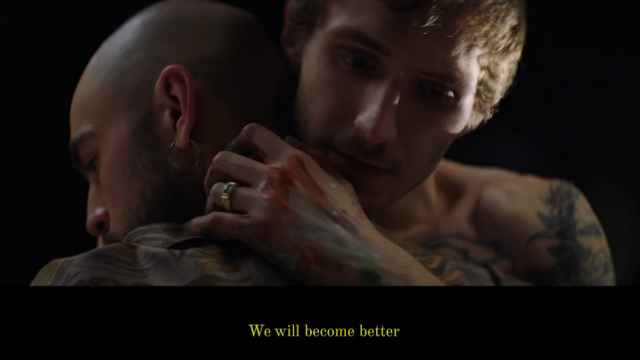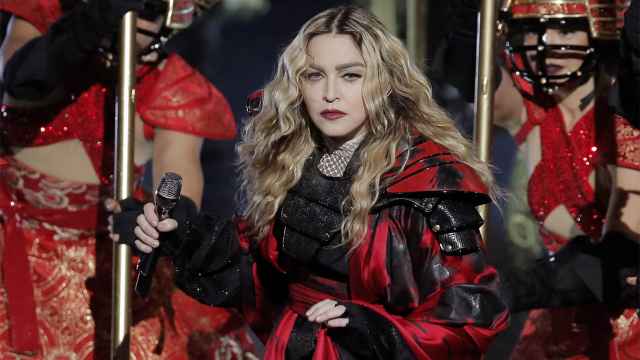Russia will probe the recent national music awards for “gay propaganda” after it featured attendees in gender-flipped clothing and what viewers said resembled a gay marriage ceremony.
Last Friday’s Muz-TV music awards broadcast sparked controversy when beauty blogger Igor Sinyak walked the red carpet in a gown and one of Russia’s highest-paid TikTokers Danya Milokhin appeared in a half-dress, half-tuxedo.
Pop icon Filipp Kirkorov also turned heads when he and rapper Dava, both wearing tailcoats, arrived in a flower-adorned convertible accompanied by oiled and shirtless bodybuilders. Some viewers likened their appearance to a “coming out” or a gay wedding.
“Roskomnadzor will analyze the Muz-TV awards broadcast for violations of Russia’s current legislation, including in the realm of protecting children from information that harms their health and development,” the state media watchdog Roskomnadzor's press service told the state-run RIA Novosti news agency Tuesday.
Muz-TV could be fined up to 1 million rubles ($14,000) and suspended for up to 90 days if found to have violated Russia’s controversial law against “gay propaganda.”
Sinyak, who has worn women's dresses in photo and video shoots in the past, told the independent Dozhd broadcaster that he's received violent threats over his dress at the Muz-TV awards. He added that he hasn't yet been contacted by Roskomnadzor and that Muz-TV has already invited him to next year's awards.
Russia banned “propaganda of homosexuality toward minors” in 2013, drawing criticism from Western states and human rights activists. Despite the criticisms, the country’s efforts to curb gay rights have struck a chord with socially conservative Russians who form President Vladimir Putin’s support base.
Russia’s constitutional changes adopted last year contain a clause defining marriage as between a man and a woman only.
A Message from The Moscow Times:
Dear readers,
We are facing unprecedented challenges. Russia's Prosecutor General's Office has designated The Moscow Times as an "undesirable" organization, criminalizing our work and putting our staff at risk of prosecution. This follows our earlier unjust labeling as a "foreign agent."
These actions are direct attempts to silence independent journalism in Russia. The authorities claim our work "discredits the decisions of the Russian leadership." We see things differently: we strive to provide accurate, unbiased reporting on Russia.
We, the journalists of The Moscow Times, refuse to be silenced. But to continue our work, we need your help.
Your support, no matter how small, makes a world of difference. If you can, please support us monthly starting from just $2. It's quick to set up, and every contribution makes a significant impact.
By supporting The Moscow Times, you're defending open, independent journalism in the face of repression. Thank you for standing with us.
Remind me later.






